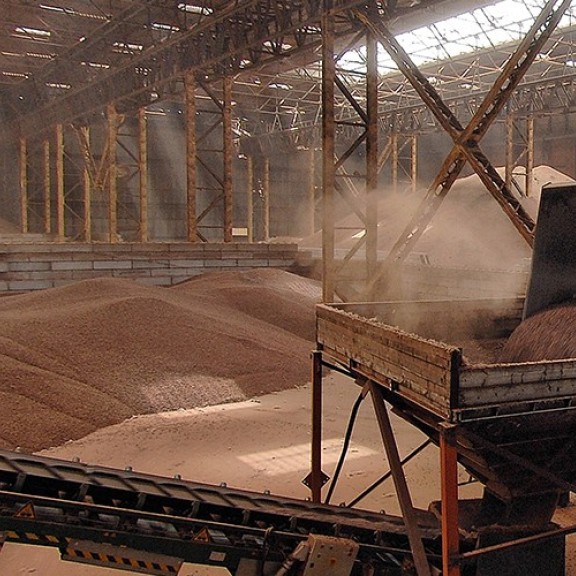
“We want and must contribute to making the chain more sustainable”
As the Amsterdam port, we are a link in international trade chains. Like the cocoa chain, an important chain for Port of Amsterdam. Mark Hoolwerf, Deputy Director at Port of Amsterdam International, shares knowledge with ports that are more at the beginning of that chain. In Ivory Coast, for example.
How does the port of Amsterdam contribute to a responsible chain?
“At Port of Amsterdam International we contribute to this in various areas. Firstly, we focus on development projects in cocoa. Especially in Ivory Coast, because this is the main production country. We do this together with the Dutch government and local port authorities. We also facilitate the cocoa cluster in Amsterdam-Zaanstad and connect them with Ghana and Ivory Coast. The 2019 cocoa mission is a good example of this. With this mission, we traveled to Ghana and Ivory Coast with a delegation from the Amsterdam-Zaanstad cocoa region, consisting of companies, NGOs, governments, knowledge institutions and banks, to discuss opportunities for cooperation and to put the community there in contact with partners from here."
So Port of Amsterdam International takes an active role in encouraging responsible chains?
“We want to make an active contribution instead of being a passive actor. We are an integral part of the chain, so we would like to contribute to making the entire chain more sustainable. The basic principle is that we are not only responsible for what happens here in Amsterdam, but can also contribute to the sustainable development of the chain as a whole together with partners such as customers, NGOs and governments. Even if we know that our influence there is obviously smaller than in our home port.”
What do you think is the best result so far?
“Personally, I am proud of our partnership with the port of San Pedro in Ivory Coast. Together we identified sustainability opportunities with a model developed and used by us in Amsterdam. That model has three levels: the own organization, the management area and the chain. This model has allowed the Port of San Pedro to develop its own sustainability program. That was very much appreciated and has also led to other projects. The Ivorian Minister of Transport wants to tackle not only logistics, but also sustainability issues. Partly for this reason, we have been asked to develop a master plan for Abidjan, another major port in Ivory Coast.”
What challenges did you face with the San Pedro project?
“The dilemma between commercial and sustainability interests. A concrete example is that West African ports compete with each other just as they do here. The question that came up time and time again was: 'If we start making more demands, the business will go to neighboring countries. So if we start asking more from our customers, won't we lose them?' Our response to this is that this is a valid point, but above all it also creates opportunities. One door may close somewhere, but other doors may also open. Companies would like to collaborate with ports that pay attention to sustainability.”
What was an important point of attention for you in this project?
“What we are good at in Amsterdam, partly inspired by our progressive city council, is that we also actively talk to stakeholders outside the port and region. That perspective of looking beyond your own boundaries forms the basis for a sustainability policy. You have to reduce the discussion to shared interests, instead of just looking at: 'I want A and you want B'. We must look at common interests and build from there towards a solution. That was also the foundation for the project in San Pedro.”
And what kind of chocolate do you eat?
“I buy responsible chocolate, the Single Origin bars. That's fantastic, because I know exactly which plantation the beans come from. These bars are made by producers such as The Chocolate Makers in our port, who are concerned about farmers and the environment. You might pay a little more for the chocolate, but that makes sense. You buy something that is not at the expense of the farmer or the environment.”
What are you most proud of?
“How much value we attach to sustainability. We are at the forefront. I am proud of the ambitions we have set out in our strategy, at various levels. We are entering a new phase in the evolution of the port. The Dutch seaports are an example because of the soft power they deploy, even beyond the borders of their own port. We are really taking new steps by being so active with our ambitions for sustainability and chain responsibility.”